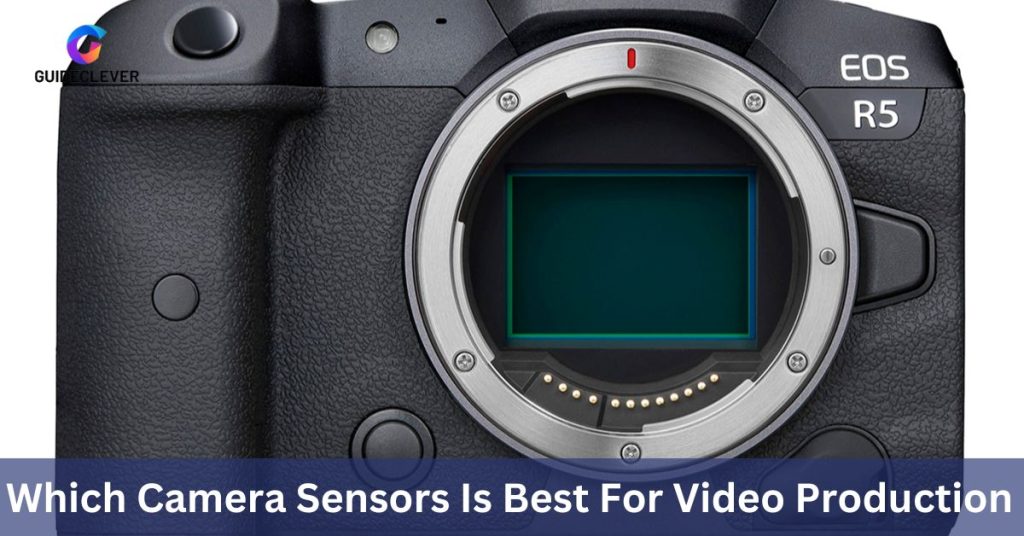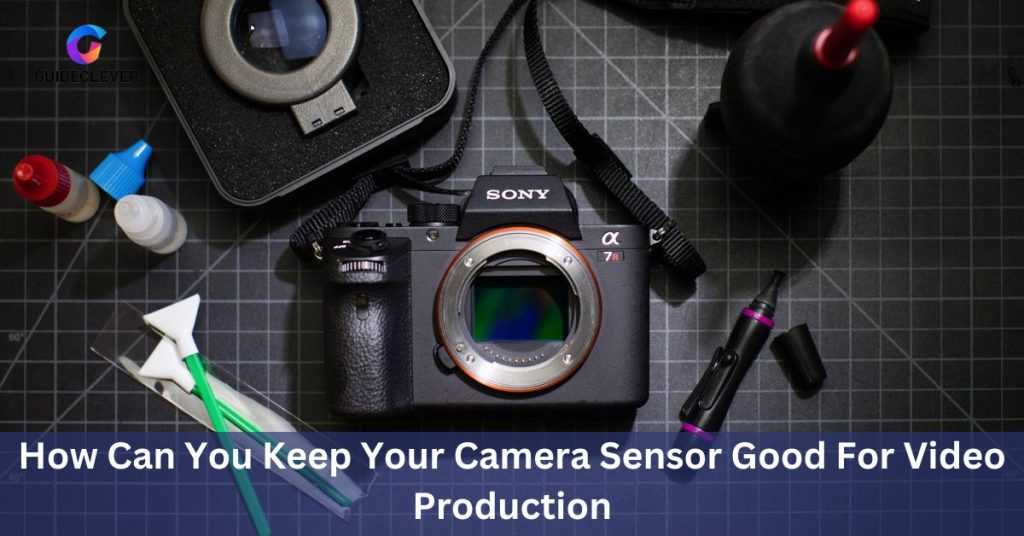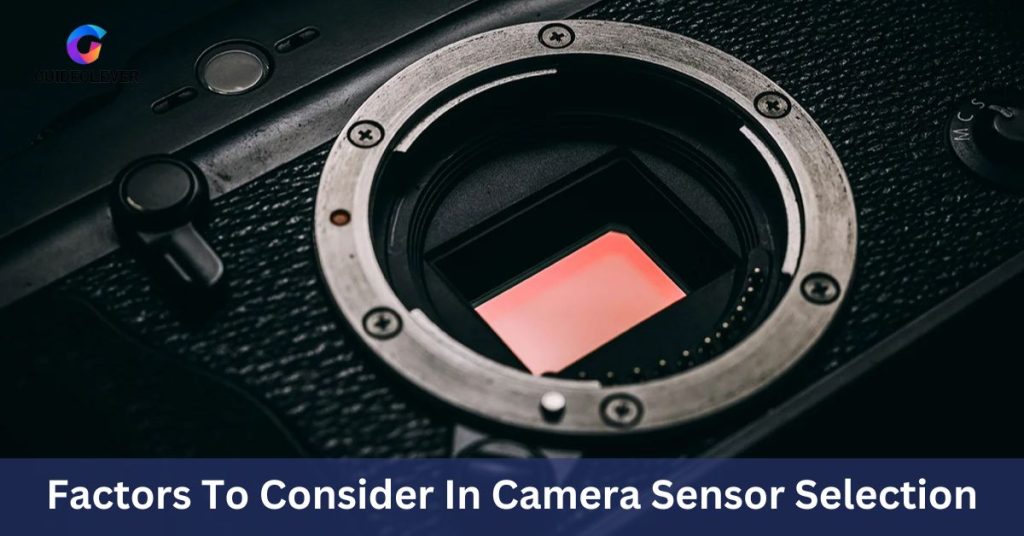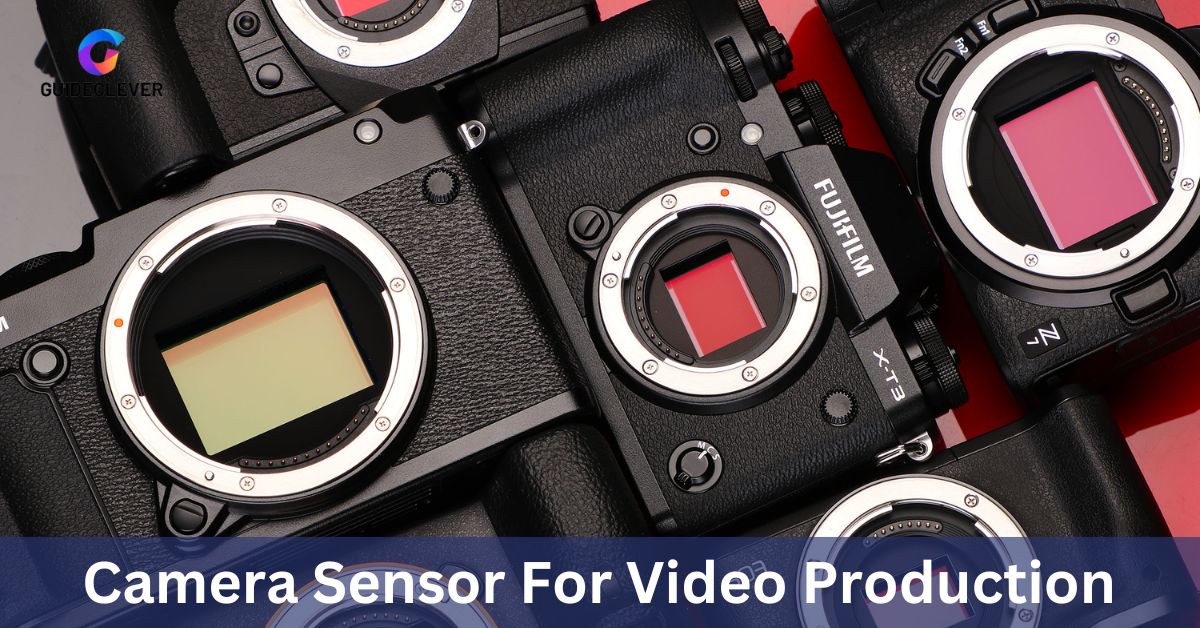Are you looking to upgrade your video production capabilities? Yes, You are in the right place. Camera sensors are an integral part of any video production, and they can significantly improve the caliber of your films. To help you make the right decision, let’s take a look at what camera sensors are and how they can help you.
This article will explore what camera sensors are and how they can help improve your videos. We’ll also seek the types of camera sensors and which sensor will be best for your video production and, also provide a proper guide. So if you’re ready to take your video production to the next level, keep reading!
So First, we will know about the definition and importance of camera sensors.
Contents
- 1 Definition and importance of camera sensors
- 2 Types of Camera Sensors
- 3 Which Camera sensor is best for video production
- 4 Camera Sensor Selection for Video Production
- 5 Relationship between Sensor Size and Image Quality
- 6 How can you keep your camera sensor good for video production?
- 7 Factors To Consider In Camera Sensor Selection
- 8 Conclusion
Definition and importance of camera sensors
A camera sensor is a type of image sensor used in digital cameras and video production. Its job is to capture light, convert it into an electrical signal, and create an image. It is the main component of any digital camera or video production system, and its performance determines the quality of your images.
The size and quality of the sensor are two important factors when choosing a camera for video production. A bigger sensor will be able to collect more light and produce images with higher quality. On the other hand, a small sensor will still be able to capture enough light for basic video production.
The most important factor when it comes to choosing a sensor is the type of lens that you will use. Different lenses need different sensor sizes to achieve optimal performance. For example, a wide-angle lens will need a larger sensor than a telephoto lens. Since we now understand what a camera sensor is and its importance.
Now we will try to know about the types of camera sensors.
Types of Camera Sensors
Two types of camera sensors are commonly used in video production.
A. CCD Sensors
CCD (Charge-Coupled Device) sensors are one of the most popular types of camera sensors. They are renowned for their reasonable prices and superb image quality. It makes them a great choice for entry-level video production. CCD sensors are also used in most-grade cameras.
B. CMOS Sensors
A CMOS (Complementary Metal-Oxide Semiconductor) is the most sophisticated camera sensor. CMOS sensors are more expensive. But CCD sensors offer superior image quality and higher dynamic range. They use professional-grade cameras and are the preferred choice for high-end video production. Above, we have learned about the types of sensors.
Now you should know which sensor is good for video production.
Which Camera sensor is best for video production

The choice of camera sensor for video production depends on budget, desired image quality, and the type of lens being used. For entry-level video production, a CCD sensor is usually the best choice. For professional-grade video production, CMOS sensors are preferred. In either scenario, matching the sensor size to the lens type being utilized is crucial. Above, we learned which camera sensor is best for video production.
Now we will know about camera sensor selection for video production.
Camera Sensor Selection for Video Production
There are various things to consider when choosing a camera sensor for video production.
Budget considerations
The budget plays an important role in determining which sensor to choose. CCD sensors are usually more affordable than CMOS, so they may be the best option if your budget is limited. So, if you are willing to spend more money, CMOS sensors will provide better image quality.
Image quality
The image quality of the sensor should also take into consideration. A higher resolution sensor will capture more detail, providing better image quality. CCD usually offers good image quality for the price. While CMOS sensors provide superior image quality with a higher dynamic range.
Specific requirements for the project
It is important to consider any specific requirements for the project. For example, a CMOS sensor is the best option if you need a sensor that can capture high-speed images. So, if you need a sensor with low power consumption, then a CCD sensor may be the best choice.
Compatibility with lenses and accessories
Make sure that the chosen sensor will be compatible with the lenses and other accessories you plan to use. Different sensors require different lens sizes to achieve optimal performance.
Practical testing and reviews
Before making a final choice, It is crucial to consider evaluations and practical testing. You can read online reviews to understand how a particular camera sensor performs in real-world conditions. Additionally, you may experiment with several sensors to see which one best meets your needs. The considerations above must be kept in mind when choosing a camera sensor for video production.
Now we will know the Relationship between Sensor Size and Image Quality.
Relationship between Sensor Size and Image Quality
When choosing a camera sensor for video production, sensor size is a crucial consideration. More light will be captured by a bigger sensor, improving image quality. Yet, it is important to note that sensor size does not equate to good image quality. A larger sensor can’t capture as much light as a smaller sensor if it isn’t of the highest quality.
Now you should know how you can keep good your camera sensor for video production.
How can you keep your camera sensor good for video production?

Use a lens hood when shooting to keep your camera’s sensor in good condition. This will help reduce flare and protect your sensor from dust and scratches. In addition, keep the lens clean and change the lens in a place away from dust. Finally, avoid sensor overheating and use the camera in humid environments. And avoid direct sunlight when shooting outdoors.
Before buying a camera sensor you should consider the following points. Then you can choose a better camera sensor.
Factors To Consider In Camera Sensor Selection

Sensor Size
Before buying a camera for video production, sensor size is a crucial consideration. More light will be captured by a bigger sensor, improving image quality. When selecting a camera sensor for video production, cost should also be taken into account. So before buying, look for larger sensors.
Resolution
Sensor resolution is important to consider before purchasing a camera for video production. How much detail the sensor can capture in a picture depends on its resolution. The quality of the photographs you may take will increase with increased resolution. So, while making a purchase, consider the sensor resolution.
Dynamic Range
Another crucial aspect to think about when choosing a sensor for video production is dynamic range. The dynamic range of a sensor determines how much detail can capture in areas of high and low light. CMOS sensors offer a wider dynamic range than CCD sensors. Thus, they could be more appropriate for photography in low-light conditions.
Low-Light Performance
Low-light performance is an important factor when selecting a sensor for video production. A good sensor will be able to capture detail in low-light environments. CMOS sensors typically offer better low-light performance than CCD sensors. So they may be the best choice for shooting in darker settings.
Rolling Shutter
Rolling shutter is a phenomenon that can cause video footage to appear distorted. It occurs when the sensor reads out each row of pixels at different times instead of all at once. CMOS sensors typically have less rolling shutter than CCD sensors. They might thus be a preferable option for shooting moving targets.
Conclusion
When selecting a sensor for video production, there are several things to consider. Even research the features and specifications of different sensor types to choose the best one for your needs. Before choosing a choice, it’s also crucial to consider reviews and testing conducted in practice. With the right camera sensor, you can create high-quality video footage. If you don’t want to research, think about the above points deeply. I hope you have got the right ideas and guidelines from today’s post.


